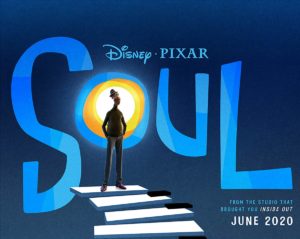Presented in association with American Shakespeare Center
In this “post-postracial” world that too often conveniently equates blackness with race—and, in so doing, perpetuates the false notion that white people are raceless beings—it is not always the case that whiteness is rendered visible and thus presented through theater as a racialized category that necessitates critical examination. Yet, with Keene, Anchuli Felicia King accomplishes this difficult task by creating a deeply engaging play that is color-conscious, as opposed to “post-racially” colorblind, especially with respect to whiteness.
Keene follows Tyler, a Black ivy-league graduate student, through a three-day Shakespeare conference that is overwhelmingly white; and the play also follows Tyler into his historically informed dreams, where aspects of nineteenth-century Black actor Ira Aldridge’s life appear in vivid detail, ultimately revealing life parallels of isolation and betrayal between Tyler and Aldridge, parallels that also resonate with the trajectory of Shakespeare’s tragic Black protagonist Othello. When Tyler dreams, so, too, does Kai, a Japanese musicologist who instantly falls in love with Tyler and his blackness and who is the only other non-white person at this Shakespeare conference. It is in this sea of whiteness that Tyler and Kai stand out, paradoxically becoming visible and invisible in distinct dramatic moments emphasizing the kind of uncomfortable hypervisibility that is a byproduct of the psychologically and emotionally harmful racism, exoticism, exceptionalism and tokenism one can experience in predominantly white spaces.
With its emphasis on anxious early career researchers, in addition to its glimpse into the past through Aldridge and the significant challenges he faced because of anti-Black racism, colonialism and prejudice, Keene offers a powerfully serious critique of several relevant and fundamentally important issues that deserve centering in the arts and public discourse. These issues include but are not limited to the: objectification of Black men; instability of whiteness as a racial construct; marginalization of international scholars; limits and failures of allyship; white scholars’, or white people’s, presumed ownership of Shakespeare vis-à-vis bardolatry; elitism and toxicity of academia; gatekeeping in academic publishing; competitiveness of graduate program cohorts; commodification of blackness; peer pressure and anxiety permeating academic conference environments; and the consequences of racialized self-doubt and the resulting self-sabotage.
Through this satirical and timely play that occasionally alludes to American pop music, King invites her audience to consider identity and belonging as she highlights some of the negative and even damaging aspects of a profession—academia—that undoubtedly extend beyond Shakespeare studies and the theater world, beyond Tyler’s and Kai’s dreams, and into the real worlds of those who experience Keene.




